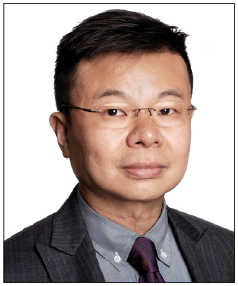By Nick Ferguson
A Chinese court has moved to block the sale of iPhones in China as part of the long-running global legal battle between Qualcomm and Apple.
The Fuzhou Intermediate People’s Court in China granted Qualcomm’s request for two preliminary injunctions against four Chinese subsidiaries of Apple, ordering them to immediately cease infringing on two Qualcomm patents through the sale in China of several iPhone models — from the 6S to the X — according to a statement released by the chipmaker.
“We deeply value our relationships with customers, rarely resorting to the courts for assistance, but we also have an abiding belief in the need to protect intellectual property rights,” said Don Rosenberg, general counsel for Qualcomm. “Apple continues to benefit from our intellectual property while refusing to compensate us. These court orders are further confirmation of the strength of Qualcomm’s vast patent portfolio.”
Erick Robinson, former director of patents in Asia for Qualcomm and owner of ChinaPatentBlog, described the development as “groundbreaking” on LinkedIn. “Because it is a preliminary injunction [PI], the injunction is not stayed pending appeal. Apple is entitled to file for administrative retrial of the PI ruling before the same court, but the chance of reversal is very slim.”
The injunction has little effect on Apple at the moment as it applies to phones running an outdated operating system, iOS 11, which was current at the time of filing, but has been superseded by iOS 12. However, Robinson says that Qualcomm may be able to move quickly to include the latest version of iOS.
The two patents, which Qualcomm says were previously found to be valid by the Chinese patent office, enable consumers to adjust and reformat the size and appearance of photographs, and to manage applications using a touch screen when viewing, navigating and dismissing applications on their phones.
In a statement, Apple told Reuters: “Qualcomm’s effort to ban our products is another desperate move by a company whose illegal practices are under investigation by regulators around the world.”
The two companies have been suing each other back and forth in the US, EU, UK and China. Apple has claimed that Qualcomm is charging excessive royalties for its technology and has ceased paying as it awaits the outcome of litigation, while Qualcomm has counterclaimed that Apple is infringing its patents (as in the Fuzhou case) and broke a software agreement by providing sensitive information about Qualcomm’s products to rival chipmaker Intel.
The Federal Trade Commission is also suing Qualcomm in an antitrust case that argues the chipmaker has not made its technology available in a fair, reasonable and non-discriminatory manner.
Qualcomm is celebrating a victory in Fuzhou this week, but the ultimate outcome of its global disputes may be that it is forced to license its technology to Intel and renegotiate terms with manufacturers — and none of that is likely to be news it wants to celebrate. But it could be good news for consumers.
Lian De law firm is reportedly representing Qualcomm, led by Jiang Hongyi, and Fangda is advising Apple.













